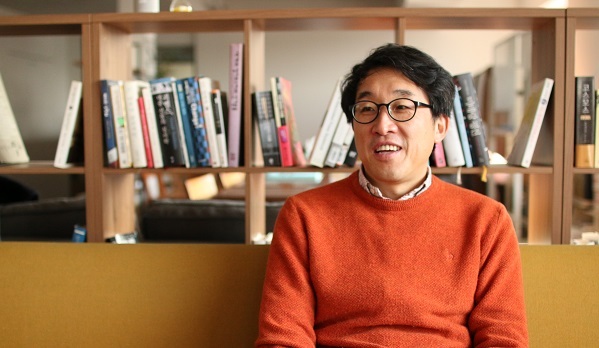With disaster risks, social media and other mounting challenges, the government and businesses should strive for a systematic, across-the-board change to better forecast crisis and improve their readiness, a leading crisis management consultant said Thursday.
“In crisis management, there are only two sides -- those who are prepared, and those who are not,” said Yu Min-yeong, chief executive and a partner of Acase.

Yu Min-yeong (Song Sang-ho/The Korea Herald)
“The readiness would determine your utility of the ‘golden hour’ and post crisis resilience, which are absolutely important, as well as the speed.”
Yu picked wishful thinking and the hierarchy within organizations, both public and private, as two key culprits behind the recent series of nationwide crises, including the 2014 Sewol ferry tragedy and 2015 Middle East respiratory syndrome outbreak.
“The two disasters raised alarm at the time, but as society returned to normal, the disasters did not lead to new preparations and rebuilding efforts. Instead there is the wishful thinking that it is possible to just get by even though another disaster might break out,” he said.
The 47-year-old expert made his foray into public affairs in the late 1990s as an aide to Kim Geun-tae, the late prominent democracy activist and liberal lawmaker. He also served the Roh Moo-hyun administration including as chief of the Cheong Wa Dae press center Chunchugwan. After working as the spokesperson of Rep. Ahn Cheol-soo in 2012, he cofounded the Seoul-based consultancy.
Yu also taught at Hallym University of Graduate Studies in Seoul and coauthored the April 2015 book, “Reputation Society.”
In recent years, the concoction of smartphones and social media has brought a fundamental shift to communication dynamics, imposing a fresh interpretation to the term “public,” he said.
“I have learned about the world of public and political affairs from my previous careers especially at Cheong Wa Dae, but the influence of public opinion only continues to grow in the era of excess and unlimited connectivity,” Yu said.
“For companies, their media strategies had principal meaning as an advertising and promotion tool in the past. Now public opinion is an absolute variable to strategic communication and crisis management, with consumers being the ‘subject,’ not the ‘object,’ in the supply chain.”
Despite the prevalent numbness to potential crises, he has been sensing a subtle change in the views of corporate executives especially since Korean Air’s “nut rage” incident in December 2014, Yu noted.
Cho Hyun-ah, a member of the flag carrier’s founding family and then its executive vice president, fanned a drumfire of nationwide criticism after being found to have ordered the pilot of her flight to return a taxiing plane to the gate to kick out the cabin crew chief at a New York airport for serving nuts in a way that she mistakenly insisted did not match the manual. The furor persisted despite her expressing her repeated regrets before cameras, and spilled over to the owner family, prompting her father and company chairman Cho Yang-ho to hold a news conference to apologize to the public and employees.
The event highlighted South Koreans’ inimical feelings toward the family-run conglomerates, or chaebol, and some of its offspring’s “imperialistic” and arrogant behavior.
“Giving a lecture during a meeting of Samsung Group presidents last July, I felt that they were really trying to pay attention. I think the Korean Air case had a substantial impact,” Yu said.
“This area has previously been mainly in the interests of communication or public affairs staffs, but many of those at the top echelon are beginning to change since the incident, together with the explosive growth of smartphones, social networks and other areas that had not belonged to the realm of existing media.”
To fend off crises and boost readiness, entities should make constant efforts to regularly update playbooks and carry out simulations, in which the resolve of top management and a consciousness change throughout society play a vital role, Yu stressed.
“Crisis management is something that the system and your body naturally remember. In that aspect, the current situation is much retrogressive especially within an administration in which everyone relies on the president and her belief and willingness,” he said.
“We are no longer living in a world where leaders chant ‘Follow me.’ They now should understand their audience first and try to appeal to their hearts.“
By Shin Hyon-hee (
heeshin@heraldcorp.com)




![[From the Scene] Monks, Buddhists hail return of remains of Buddhas](http://res.heraldm.com/phpwas/restmb_idxmake.php?idx=645&simg=/content/image/2024/04/19/20240419050617_0.jpg&u=20240419175937)

